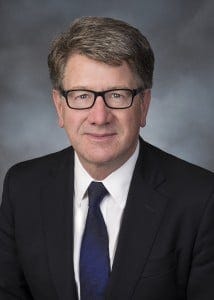PRESENTED BY A LIFE OF PORPOISE
There are many fewer terrible people in the world than there are good ones, but defeating them does require bravery and commitment. Let’s meet some of the brave ones.
On The Side Of Life
This year’s Goldman Environmental Prizes honor activists “who took on major, entrenched, and powerful interests in their local contexts, and won.”
The depictions of the seven honored activists below comes from the invaluable Climate Nexus newsletter, Nexus Hot News, to which you can subscribe here.
In Los Angeles, Nalleli Cobo was nine years old when she started going door to door and urging her neighbors to call their local gas company about the noxious smell of pollution from nearby oil wells and pipelines. In January, the city ended oil drilling.
In Ecuador, Alex Lucitante (29) and Alexandra Narváez (30) led an Indigenous movement to defend the Cofán people’s ancestral territory from gold mining. Gathering evidence by forest patrols, drones, GIS, and camera traps, they secured legal victories that canceled 52 illegally-granted gold mining concessions and protected 79,000 acres of biodiverse rainforest sacred to the Cofán.
In Australia, Julien Vincent spearheaded an organization that succeeded in pushing all four major Australian banks to commit to divest from coal by 2030.
In Nigeria, environmental lawyer Chima Williams collaborated with the Goi and Oruma communities to hold international oil majors Shell and TotalEnergies accountable for pollution they essentially offloaded onto small domestic firms that lacked the resources to manage operations and mitigate environmental damages in the Niger Delta.
In Thailand, Niwat Roykae organized villages dependent on the Mekong River for nutritional, medicinal, and spiritual nourishment into citizen scientists and journalists. They successfully raised the alarm and forced the Tahai government to cancel a major canal blasting project. (Bangkok Post, The Kiplomat)
In the Netherlands, Marjan Minnesma and her group Urgenda, after other smaller victories, brought a lawsuit against the Dutch government itself for failing to protect its own citizens from climate change. After numerous appeals, the Netherlands Supreme Court ordered the government to reduce climate pollution by at least 25%.
Prominent scientists Sue Moore and Andrew Read have been nominated to the U.S. Marine Mammal Commission, which has the job of preventing the extinction of the last ten vaquitas in Baja California, the shrinking right whales, the imperiled Irawaddy dolphins, the stressed-out humpback whales, the poisoned sperm whales, the trawled bottlenose dolphins, the deafened orcas, the starving manatees, the polluted polar bears, the cat-infected Maui dolphins, the slaughtered pilot whales, and all the other marine mammals that humanity (for a more specific look at which sectors of humanity, see the section below) is driving to extinction.
The Potomac Riverkeeper Network “is suing Alexandria, charging that the Northern Virginia city has been allowing coal tar and other cancer-causing pollutants to contaminate the waterway for decades.”
On The Side Of Death
With the enthusiastic backing of the Biden administration—particularly international-fracker-in-residence Amos Hockstein—the liquefied-natural-gas company Venture Global will break ground on a new LNG export plant in Louisiana, to be fed by a new Enbridge pipeline, the Gator Express.
The lead banks to Venture Global for the $13 billion project are Bank of America, Goldman Sachs, ING, JP Morgan, Mizuho, Morgan Stanley and Royal Bank of Canada, with Banco Santander, Bank of China, CaixaBank, Deutsche Bank, Industrial and Commercial Bank of China, ING, Landesbank Baden Württemberg, MUFG, Natixis, Nomura, Sumitomo Mitsui, The Bank of Nova Scotia, and Truist Bank providing additional lending. The notorious polluter law firm Latham & Watkins served as counsel to Venture Global and Skadden Arps served as counsel to the lenders.
Random observation: the CEO of Venture Global, Robert Pender, looks suspiciously like Brett Kavanaugh with a pair of glasses.
On the Hill today: Agriculture Secretary Tom Vilsack testifies before the Senate on challenges facing farmers. Secretary of the Navy Carlos Del Toro defends the $231 billion Navy and Marine Corps budget request, with $719 million—0.3 percent—officially dedicated to renewable energy, energy efficiency, and climate change efforts. There will also be a hearing on the $1.1 billion request for the clean up of military toxic sites.

Hearings on the Hill:
10 AM: House Appropriations
Labor, Health and Human Services, Education, and Related Agencies
Fiscal Year 2023 Labor Public Witness Day10 AM: Senate Agriculture, Nutrition and Forestry
Opportunities and challenges facing farmers, families, and rural communities10 AM: Senate Appropriations
Defense
President’s Fiscal Year 2023 funding request and budget justification for the Navy and Marine Corps12 PM: House Appropriations
Defense
Defense Environmental Restoration
The Walk for Appalachia’s Future is in West Sulphur, Virginia today.
Thanks for subscribing and spreading the word. DMs are open—@climatebrad






